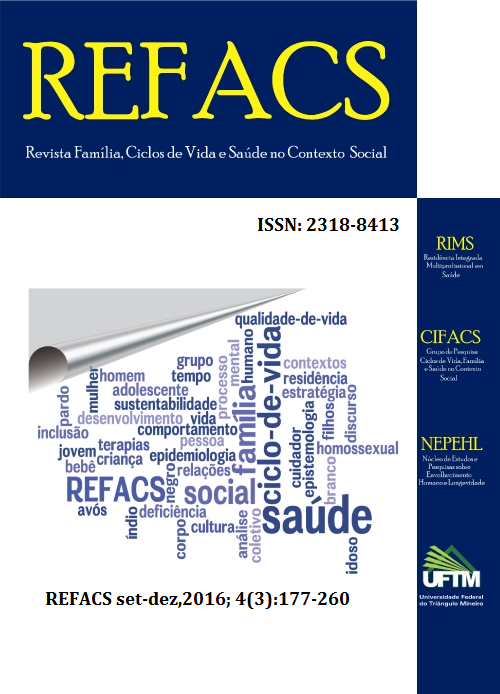Qualidade de vida de idosos na estratégia saúde da família
DOI:
https://doi.org/10.18554/refacs.v4i3.1774Resumo
Este estudo tem como objetivo avaliar a qualidade de vida de idosos residentes em uma área de abrangência da Estratégia Saúde da Família do município de Guarulhos-SP. Foram aplicados três questionários: um criado especificamente para caracterizar a população quanto às características sócio sanitárias, WHOQOL-Bref para avaliar QV e WHOQOL-Old especifico para idosos. Procedeu-se a análise descritiva, teste t-Student e ANOVA-F Tukey (p<0,05). Predominou o sexo feminino e a faixa etária de 60 a 69 anos, baixa escolaridade e renda familiar. O maior escore de QV observou-se no nos domínio físico No WHOQOL-Bref. As facetas funcionamento do sensório obtiveram melhor escore. Não houve diferença estatística na comparação entre homens e mulheres. O bem-estar na velhice está relacionado com o equilíbrio entre várias dimensões da qualidade de vida.
Descritores: Qualidade de vida; Envelhecimento; Idoso.
Downloads
Publicado
Edição
Seção
Licença
Este trabalho está licenciado sob uma licença Creative Commons Attribution-NonCommercial 4.0 International License.



